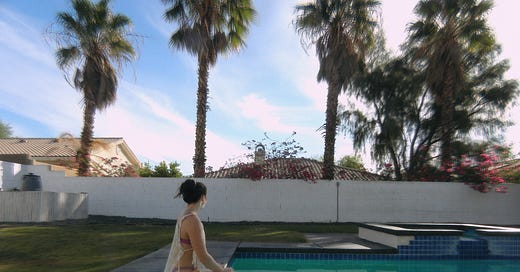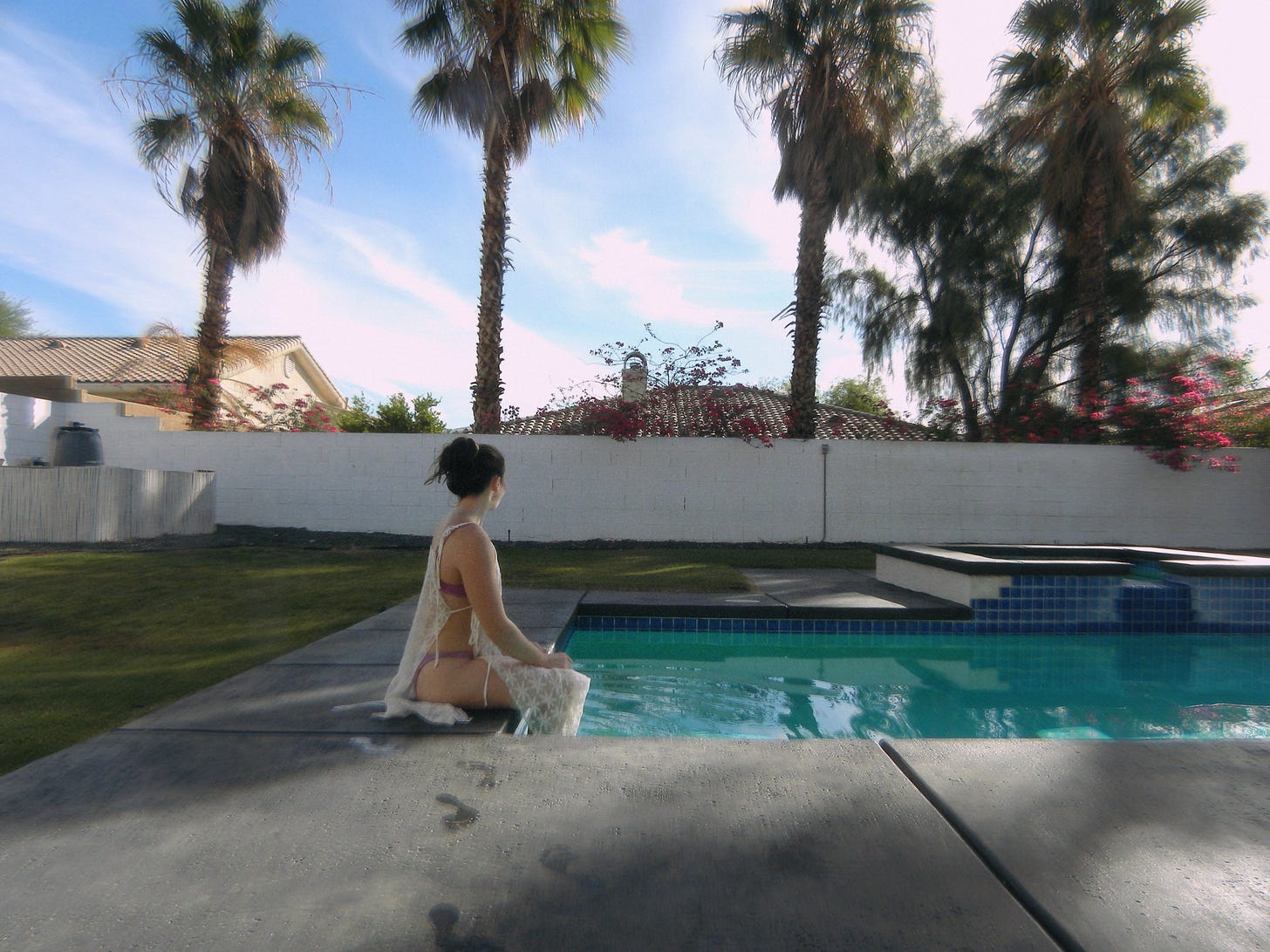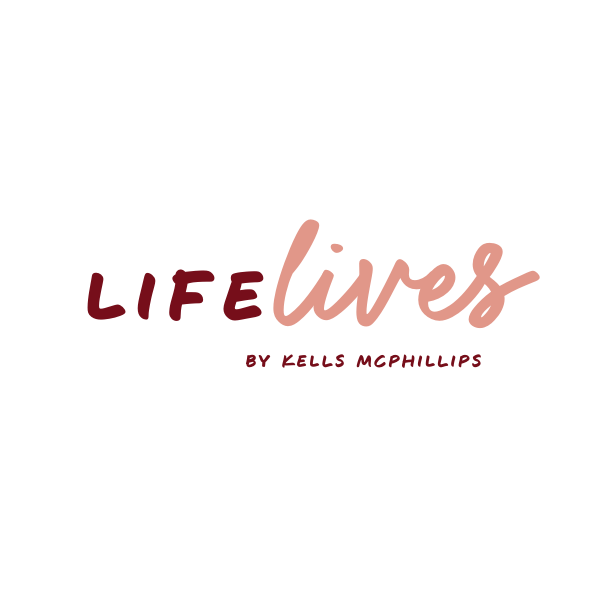I have a secret folder on my desktop, a folder filled with many short stories. Over the years, I’ve submitted them to literary journals and even come close to getting some of them published. Yet they’re all still there, together, in the folder. Mostly unread.
As a fledgling writer, you’re told never to release your stories to the internet; it’s more valuable for them to be printed in journals and sieved through the hands of editors.
Today, I’m putting those expectations aside and sharing a short story I wrote in the aftermath of the Dobbs decision in 2022 — when my rage felt like a second person fighting for space inside me. The story was shortlisted for a prize and even earned me a fellowship. But up until now, only a handful of people have read it.
Given that we’re days from an election that will impact women in either an extremely positive or extremely negative way (please know, there is no in-between), I wanted to share it. Maybe there’s an undecided voter among you, or maybe you just need a reminder about what human rights are worth fighting for and writing for.
The story is longer than my average Substack post, so I recommend opening it in a new tab or reading it in the Substack app. Otherwise, it will get cut off in your email — and that will be a bummer, haha. Thanks :)
Vacation
By Kells McPhillips
Go to Cancún alone if you want to decide what belongs to you. There are resorts there designed specifically for couples (all of them are really), and you should book a room (the nicest possible one, overlooking the frothing mouth of the ocean) so that you can feel your aloneness more acutely. Think of the Greek myth where all the couples rolled together in great balls of flesh until Zeus struck the ground with his lightning bolt and sent everyone scattered over the earth in search of their other half. Except in Cancún everyone is still smushed together, tumbling from their bedrooms to the blue-eyed pool to the blistering hot breath beaches.
It’s hatching season and you hatch a plan to see Cancún’s turtles. It’s the first day of your short vacation and a thick sheet of rain pours over the beach as you fiddle with the snorkel. Your instructor says it’s fine to go out anyway. The turtles couldn’t care less about the weather; neither should you. Her laugh catches in the wind, and you wonder who, if anyone, will hear it. She leads you into the surf with a bright red raft bobbing behind her. It is attached to her waist and she tells you that you can hold on whenever you like. She’s a strong swimmer because she grew up on the Amalfi Coast, and land is, will always be, a vacation home. You make your body a flat plank of wood and peer down into the sea. The stench of sargassum clogs your nose through the thick plastic of the snorkel, so when you see your first turtle there is a synesthesia of brininess and beauty; their great green backs roll over the current, disappearing temporarily into the murky stirring of the sand before reappearing like old thoughts. You wonder when your own camouflage is the most effective. Here? Amidst the couples? Yes, you decide. You are the reek, the sargassum. You realize this as you jut your chin above the water, remove your snorkel, gulp the air. You are the strong fishy smell camouflaged by resort blue, resort green.
Thunder cracks overhead and you can’t help it, you start counting—it’s what you’ve done since you were a child. One, two, three—strike. The lighting, then, is just three miles away. (This whole counting thing may be a hoax; it hardly matters—does it? The ritual, the impulse, is what matters.) Your snorkeling instructor says you better start making your way to the shore, and you do, paddling after her. Once, only once, you panic and hitch your body to the life raft. You’re not an Amalfi Coast native, but you have a strong, sure swimming stroke. It’s what’s inside your body that destabilizes everything. When you first took the test, you Googled “pregnant body.” If someone were to thrust a high school biology textbook in front of you with a diagram of a woman, you would be able to point to the correct pink blob, say, “uterus.” But you wanted to find the exact coordinates on your body to press your hand into, to count three paces below the belly button or half a palm print from either hipbone. You discover that the internet can’t give you this. There is an ocean between a pregnant diagram and a pregnant body. You can’t superimpose one on top of the other.
The instructor kicks and kicks her long propulsive legs. When you feel right in yourself again, you let go of the raft. By the time you feel the grit of sand beneath your toes the storm has blown away. The instructor chases a plastic bag somersaulting along the beach. Her blonde hair waves like a flag as she runs and you watch, shivering in the warmth. “We have enough pollution already,” she says, apologizing to the turtles with you and the sargassum there, as witness. If you focus, you can sense every individual grain of salt on your skin. Your whole self feels shiny and incandescent.
As you leave the beach, you see the turtles’ nests, the brittle fingernail shells, alien donut holes. Chickenwire twists around the entrance, protecting the pulse of life, and you look back and forth between the nests and the edge of the beach, where a great machine, a sea tractor of sorts, combs the water for sargassum. The right amount of sargassum is good: small sea creatures camouflage in its tendrils, survive. Procreate. Too much is a plague on the ecosystem. They scoop it up, truck it away so the turtles won’t get tangled up within it when, at last, those shells splinter open and feel the flush of sunshine for the first time. The machine wails as it fulfills its task of decluttering the sea. For a moment, over its din, you can’t even hear the ocean.
(A bit of sargassum crept into your bathing suit in the sea, staining your skin with rash. It spreads between your breasts and down your stomach. Every time you see it, a slice of your mind whispers “birth mark, birth mark, birth mark.” Another slice of your mind agrees.)
On the first night at the resort, you sit in the piano bar. You are your only company. A great red current is draped over the room like a diaphragm, no, like a womb. No, like the fibrous walls of your heart. You are dining in your heart. Seriously. The resort is all-inclusive, and the piano player’s music has the quality of all-inclusiveness: It’s all “Everlasting Love” and “I Will Always Love You” and “I Can’t Help…” You get the picture. Around you, couples are sharing the walls of their Siamese hearts and you consider where to look. At the ceiling. At the piano player’s expressive fingers. Behind closed eyelids. The most enticing possibility is staring at the other hotel guests. Of course it is, but that would break character. You’ve been good so far at acting like you are the only one in the room.
With a sharp nod of his chin, the piano player asks you to join him on the bench at the center of the heart. You do and your mind floods with the piano lessons you took as a child, the way you never learned to read music. Instead, you memorized the movement of your teacher’s fingers, made them your own. By the time you were ten years into your lessons, you could play Beethoven but couldn’t read a single sheet of music. The day your instructor realized what you’d been up to, he quit—and so did you. But this piano player doesn’t want you to read anything, except maybe the room. He asks you what song you’d like to play with him. You answer. The notes are lazy and bright. In your head, a voice sings: “Woh, Mexico, it sounds so simple, I just got to go. The sun's so hot I forgot to go home, guess I'll have to go now.” Your pointer finger punches the keys in exactly the pattern he showed you; he reads the sheet music.
Later, the waiter lights your dessert on fire right before your eyes and for a moment the whole room sits in the flames of the cast-iron pan. Then it is over and you eat sticky flambéed strawberries and go to bed with a mild stomach ache. You dream of swimming in berry juice, a thick gelatinous swim.
If you’re wondering why you’ve gone to Cancun alone it’s because you have a decision to make. It’s the kind of decision that requires what people call “space” when they really mean “time apart from the normal bullshit:”
Emailsdishesworkexercisecallingyourmomflossing.
Oh and your decision has a deadline. Turtles can hold their breath for forty-five minutes before they have to go up for air and you’re holding your breath right now. Lungs screaming. Eyes burning with saltwater. Pretty soon your body will make the decision for you. Then your state will. Not necessarily in that order. So, of course, your dreams are sticky; even in unconsciousness, your body is counting its anxieties, biding its time. One, two, three—crack!
(Here’s the question you keep returning to: What does it cost, this being alone?)
You spend the following day watching the resort guests, a plastic chair carving long rectangles into your pink skin. At the pool, a bridal party takes an underwater exercise class, their legs splashing, whirring, sending bubbles skittering everywhere. A woman sitting bone dry on the sidelines in a deck chair copies their arm rolls, backstrokes, bicep curls. She’s not a joiner, but the slow parade of margaritas she’s sipped this weekend has made her squirm with guilt, the guilt of collecting too much body.
The next morning you are sitting at the breakfast buffet peeling the hard bits from a croissant. There were so many breads to choose from this morning: crackling French bread and mini-donuts and sweating chocolate croissants. All spread across a white-clothed dining table like children looking up at you. Beyond the breads and out the window, the ocean spreads out flat like a second tablecloth. You wonder, absentmindedly, if you dropped the bits of the croissant into the ocean, would the turtles rise up, suck them into their beaked mouths?
They’re calling the laws “breadmaker laws.” Well, the government isn’t, but those governed are. They’re calling them breadmaker laws because they legally mandate that every woman contains a breadmaker, a machine that takes the ingredients (sperm and ovum), makes a baby. As the owner of the breadmaker, it is your duty to make bread should the proper ingredients arrive in your body—and make bread you will if you decide to leave Mexico without the surgery that summoned you over the border.
Just two hundred feet away from where you sit, at the spa, a team prepares the seaweed they will paste onto your body later. The procedure will go something like this: They will ask you to strip naked. They will wrap you in the stinking sargassum. Then, the room will go black. You will begin your journey back to belonging to yourself. When your skin meets the beach air again, you will return to the solitude of your own body. A solitariness that was never, not once, guaranteed to you. When you arrive home in the States, you will tell everyone, “Yes, Mexico was gorgeous! I swam with the turtles; I went to the spa and got mummified by seaweed. It was just the me-time I needed.”
This vacation is an alibi of the body. And you recognize, while picking at your croissant, how very lucky you are to be a tourist.
At the table next to you, a couple sits side by side, holding hands even though it is inconvenient to eat your breakfast with only one hand. You hear the woman outlining her plans. At first they are a shy, slow drizzle—then they pour from her chest all at once. She is young, younger than you and much younger than her companion—and her plans have a just-hatched nature to them. She butters a roll in deliberate honest strokes, and she wants modest, unmodest things: to get a business degree and wait until she’s older to have children and start a business that helps young girls learn about cryptocurrency. They are all things you want, too: the dishes and the dreams. Calling your mother on Sundays and not getting out of bed sometimes. Getting into bed at night with someone beside you; that feeling like the sweetest, saddest part of your day. You remember wanting like this. How the wanting, to you, has always paled in comparison to the getting.
You’re always a little bit lost in the resort. There are signs everywhere but they are vague and unhelpful. “Ocean,” one says with an arrow pointing straight forward into a dense crop of trees. Part of you thinks they want you to drop off the grid. For time to become a missing person. To experience resort-induced amnesia. The map they gave to you at check-in is an incomprehensible thing with blobs of blue and green and brown that represent various pools, bars, places to eat. A gym, a spa. The hotel staff notices that you have no idea where the hell you’re going. (Who among us can read a map these days?) “I’ll walk you there,” they say. “Come, it’s on my way.”
When they escort you from place to place, you are a child once again, following the tide of your mother’s soft fingers as they yank you away from the undertow. Your mother who chose you. Your mother who had all but given up on being that word that contains multitudes, “mother,” when she missed a period and just like that (Bam! She always said “bam!” like that when she retold the story) you were something germinating inside of her. Your mother, who decided to keep you despite the doctor’s warning that no less than a million things could go wrong with the pregnancy.
There is a photograph of your mother here, in Mexico, around the time she decided to have you. She and your father were still together in this captured moment, but your mother came alone. Watched the breathy summer storms wallop the tropical landscape from her beachfront balcony. Chose from a buffet of breads. Treaded in the tossing lime-blue sea breathing for the both of you. But in the photograph, she’s not in the water, her body is arranged across a deck chair. Her limbs sprout around a belly growing full, fuller by the minute. A palm sprouts above her in the photo. The light drips through its leaves and scatters across her body like solar confetti. A shadow licks around the upper curves of her face, but her smile is visible there, a smile that’s exhaling, a smile that says, prays really: “I’m no longer alone and what a relief.”
Back at breakfast.
The woman at the table next to you says, What do you want to do today? The man says, Whatever you want. He’s reading the news on his phone. The woman shuffles around in her seat, moving the fabric of her coral dress to fan around the chair before sweeping it over to one side. Nervous fingers reach for the gold bangles strangling her thin wrists; she moves them up, then down the stem of her forearm. For a moment, your attention flits away from her. You watch your fingers pick apart your croissant. After all, you’re not supposed eat before your seaweed wrap. Your stomach must be empty; you brain must be full. When you look back up, the coral-dressed woman has lost interest in her breakfast companion. She looks instead at you. Her eyes swim across your face, take in the empty chair beside you. They ask, Are you alone here? Alone at this romantic resort? Longing blows off her like a balmy, smothering wind. How much of our lives is spent pining for solitude? How much of that solitude is as self-realizing as we wish it to be?
The man who’s eating with her excuses himself to use the bathroom. It is just you and her, facing one another.
“Enjoying your vacation?” she asks.
“Very much, you?”
“Yes, but I do feel like I’m always being watched,” she replies.
You laugh your first Mexico laugh. “What’s new?” you ask.
She smiles politely, but her husband/boyfriend/whoever is coming back now, you can see it in the way her mouth relaxes, the way she straightens with a sharp inhale. In three, two—
Whoever sits down. You look away, from her, out, to the sea.
There is a single requirement for being alone and it is this: That no one else is here with you. You decide something right now, right this minute looking over the veranda and out at the sea slicing itself open again and again in waves. You decide that if you say, “I’m alone” and believe it, then your decision is made. You decide this, and as you do, your eyes leap away from the woman and focus on the ocean just outside the window. Slender strands of sargassum toss willfully in the barrels of the waves. If you can’t find your way to the spa, you will ask one of the resort guides to lead you there. After the procedure, if you feel well enough, you will swim.
Thank you, as always, for reading Life Lives! This week’s normal post will arrive on Sunday (behind the pretty paywall). If you haven’t become a paid subscriber yet, consider doing so or pay whatever you can. It helps me continue to do the work I love.
If you haven’t already downloaded the Substack app, I highly recommend it.
The app is how you’ll access the full value and experience of your subscription to Life Lives.

















An even better read the second time around.